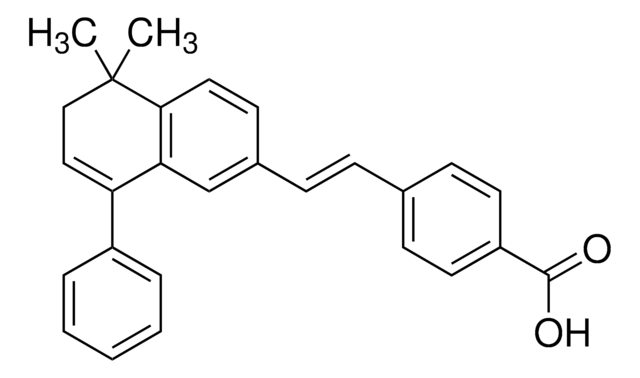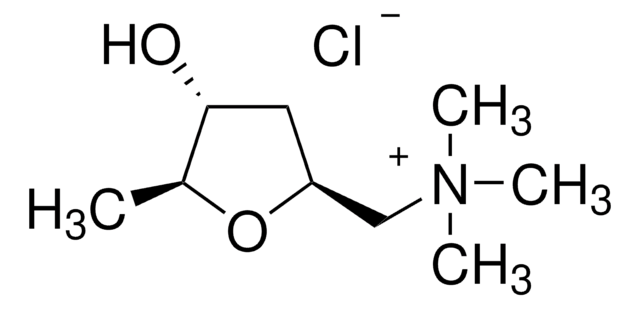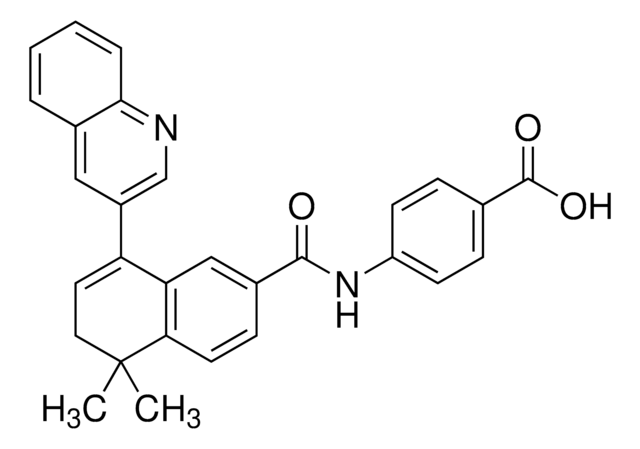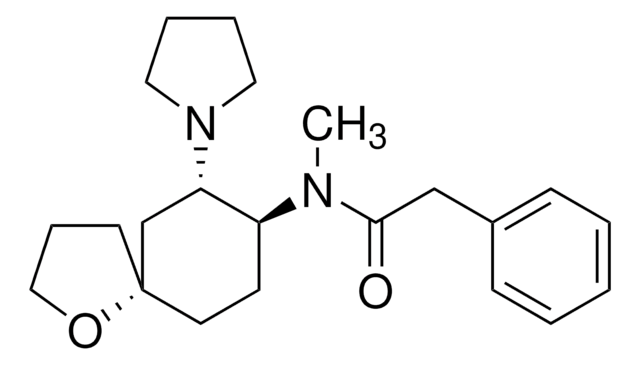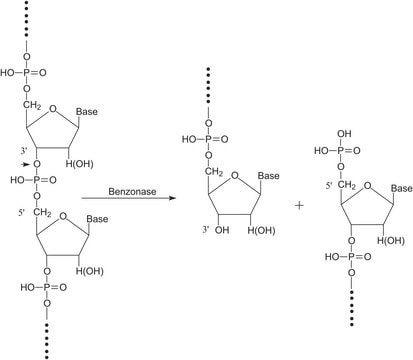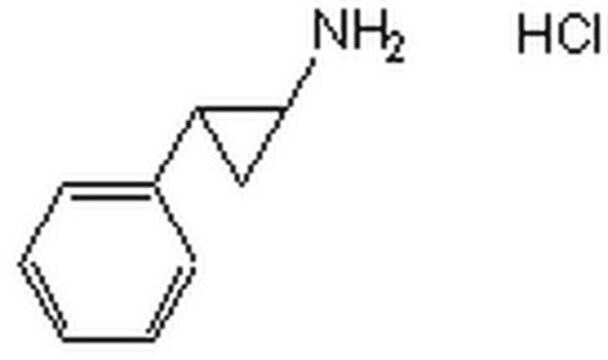O0766
ONO-RS-082
≥97% (HPLC)
Sinónimos:
2-(p-Amylcinnamoyl)amino-4-chlorobenzoic acid, 4-Chloro-2-[[1-oxo-3-(4-pentylphenyl)-2-propen-1-yl]amino]-benzoic acid
About This Item
Productos recomendados
Análisis
≥97% (HPLC)
formulario
powder
caducidad
Do not freeze
condiciones de almacenamiento
protect from light
color
white
solubilidad
DMSO: ≥20 mg/mL
temp. de almacenamiento
room temp
InChI
1S/C21H22ClNO3/c1-2-3-4-5-15-6-8-16(9-7-15)10-13-20(24)23-19-14-17(22)11-12-18(19)21(25)26/h6-14H,2-5H2,1H3,(H,23,24)(H,25,26)/b13-10+
Clave InChI
MDVFITMPFHDRBZ-JLHYYAGUSA-N
Acciones bioquímicas o fisiológicas
Características y beneficios
Palabra de señalización
Warning
Frases de peligro
Consejos de prudencia
Clasificaciones de peligro
Aquatic Acute 1 - Aquatic Chronic 1
Código de clase de almacenamiento
11 - Combustible Solids
Clase de riesgo para el agua (WGK)
WGK 2
Punto de inflamabilidad (°F)
Not applicable
Punto de inflamabilidad (°C)
Not applicable
Certificados de análisis (COA)
Busque Certificados de análisis (COA) introduciendo el número de lote del producto. Los números de lote se encuentran en la etiqueta del producto después de las palabras «Lot» o «Batch»
¿Ya tiene este producto?
Encuentre la documentación para los productos que ha comprado recientemente en la Biblioteca de documentos.
Artículos
Phospholipase A2 (PLA2) designates a class of enzymes that hydrolyze the sn-2 ester of glycerophospholipids to produce a fatty acid and a lysophospholipid. It has become clear that some of these enzymes liberate arachidonic acid in mammalian cells for the biosynthesis of eicosanoids, and thus there has been considerable interest in developing PLA2 inhibitors. Based on amino acid sequences, there are now more than 12 distinct groups of mammalian PLA2s, as well as many non-mammalian forms, all of which have been classified into 14 distinct groups with many subgroups.
Nuestro equipo de científicos tiene experiencia en todas las áreas de investigación: Ciencias de la vida, Ciencia de los materiales, Síntesis química, Cromatografía, Analítica y muchas otras.
Póngase en contacto con el Servicio técnico
